Eating a whole food, plant-based diet rich in certain foods can help lower your LDL cholesterol by nearly 30% in 30 days.
That’s what researchers at the University of Toronto found when studying the cholesterol-lowering benefits of certain foods.
Results like that are as good as a statin drug – without the possible negative side effects.
If you are motivated to lower your cholesterol through diet and lifestyle changes instead of relying on a pill, here are the foods you’ll want to take note of as you transition to a whole food, plant-based diet.
Foods High in Soluble Fiber
There are two kinds of fiber – soluble and insoluble.
Soluble fiber attaches to LDL cholesterol and helps shuttle it out of your body.
Oats & Barley
 Oats and barley contain a viscous soluble fiber called beta glucan. Beta glucan can significantly lower LDL cholesterol. Start your day with whole grain rolled or steel cut oats and/or barley for a healthy dose of soluble fiber.
Oats and barley contain a viscous soluble fiber called beta glucan. Beta glucan can significantly lower LDL cholesterol. Start your day with whole grain rolled or steel cut oats and/or barley for a healthy dose of soluble fiber.
Don’t like gloppy oatmeal? Me neither. Try this preparation method:
Combine ½ cup rolled oats and 1 cup of plain, unsweetened soy milk in a bowl. Microwave 2 minutes and let sit for 2 minutes. (Instead of a sticky, gloppy mess, you will have beautiful oats that have retained their shape.) Stir in 1 Tbsp. hemp seeds, 1 Tbsp. ground flax seed, 1-2 Tbsp. nuts (walnuts, pecans, almonds) and a sliced ripe banana. For extra sweetness you can add ¼ cup of dried white mulberries during the cooking time, or a diced Medjool date.
No time in the morning? Combine 1 cup steel cut oats and 4 cups water in a large pot. Bring to a boil. Remove from heat and cover with a lid. Let it sit overnight on the stove. In the morning, lift the lid to discover perfectly cooked steel cut oats. Stir and serve with your favorite toppings.
Really don’t like oatmeal? Make an oil-free muesli by toasting the oats in the oven and enjoy it with soy milk as a cereal. Or buy an oat bran cereal that’s low in added sugar.
Beans
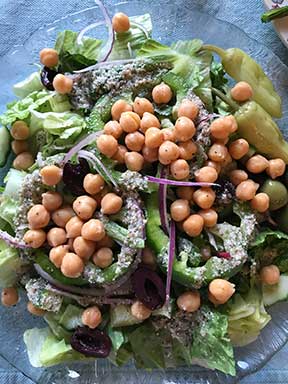 Eat lots of beans! Beans are not only full of fiber, they provide plant-based protein and resistant starch that keep you fuller longer and help balance your blood sugar even at future meals.
Eat lots of beans! Beans are not only full of fiber, they provide plant-based protein and resistant starch that keep you fuller longer and help balance your blood sugar even at future meals.
Troubled by gas or bloating? Start with a small ¼ cup serving of beans and slowly increase the amount over a couple of weeks. Your gut bacteria will adjust to the higher fiber load and you’ll have less abdominal distress. It is worth every effort to work beans into your diet as a primary protein source.
This “beans” category includes lentils and chickpeas (garbanzo beans.)
- Add beans to your salads.
- Use them in place of meat in tacos and burritos.
- Mash them up into spreads and dips.
Apples
Apples and raw unfiltered apple juice contain soluble fiber.
- Eat apple slices sprinkled with cinnamon in place of less healthy crunchy snacks.
- Include apples in your green juices for high cholesterol.
- Add shredded or diced apple to your oatmeal.
Whole Soy Foods
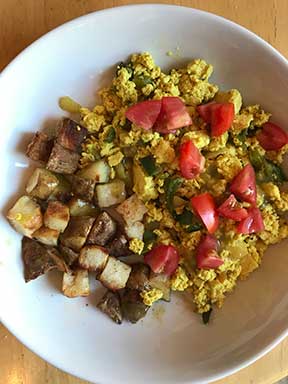 Swap out cholesterol raising meat, dairy and eggs with cholesterol lowering soy protein replacements. For the best health benefits, focus on whole soy foods like soy milk, soy yogurt, tofu, tempeh and edamame. Minimize highly processed foods made from soy protein isolates.
Swap out cholesterol raising meat, dairy and eggs with cholesterol lowering soy protein replacements. For the best health benefits, focus on whole soy foods like soy milk, soy yogurt, tofu, tempeh and edamame. Minimize highly processed foods made from soy protein isolates.
Concerned about soy and cancer risk? Soy is actually cancer-protective. Learn more in this blog post – The Truth About Soy Milk.
Aim for 50g of plant-based protein a day. The highest sources of protein are beans, lentils, and whole soy foods, but all plant foods contain protein, so don’t forget to tally up the protein in nuts and those dark leafy greens, and broccoli!
Nuts
Study participants ate 45g of nuts a day, (a little less than 2 oz.) That’s about a palmful of almonds.
Walnuts are also well studied and associated with lowering LDL cholesterol.
Raw, unsalted nuts are your healthiest option.
- Add nuts to your salads or yogurt for some crunch.
- Use ground up nuts in a salad dressing in place of oil.
- Enjoy nuts as a between meal snack.
Allergic to nuts? Eat seeds.
Ground Flax Seeds
While not included in this study, ground flax seeds are proven to help lower cholesterol and high blood pressure.
Aim for 2 Tbsp. a day. Sprinkle it on your oatmeal or yogurt, add it to a smoothie, or stir it into soy milk.
Most people can lower their cholesterol quickly by adopting a Whole Food Plant-Based diet and lifestyle. If you are interested in adopting this way of eating, and you could use some support to make step-by-step changes that stick, click here to learn more about the Juicy Plant-Based KickStart.
Here are some recipes you might like:
Tropical Black Bean Dip Recipe
Mongolian Soy Curls and Broccoli
[NOTE: If you are on a cholesterol lowering medication, do not stop taking it without your doctor’s approval. The information on this website is for information purposes only, and not meant as medical advice.]

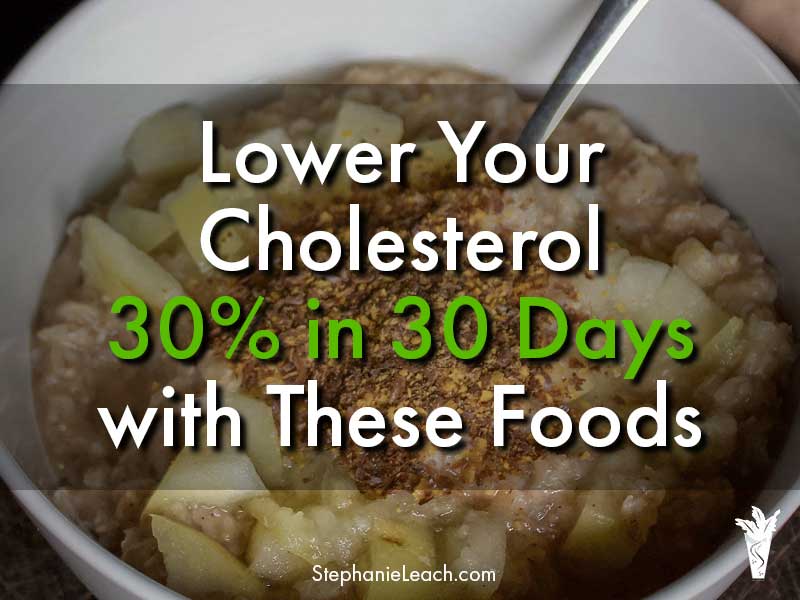



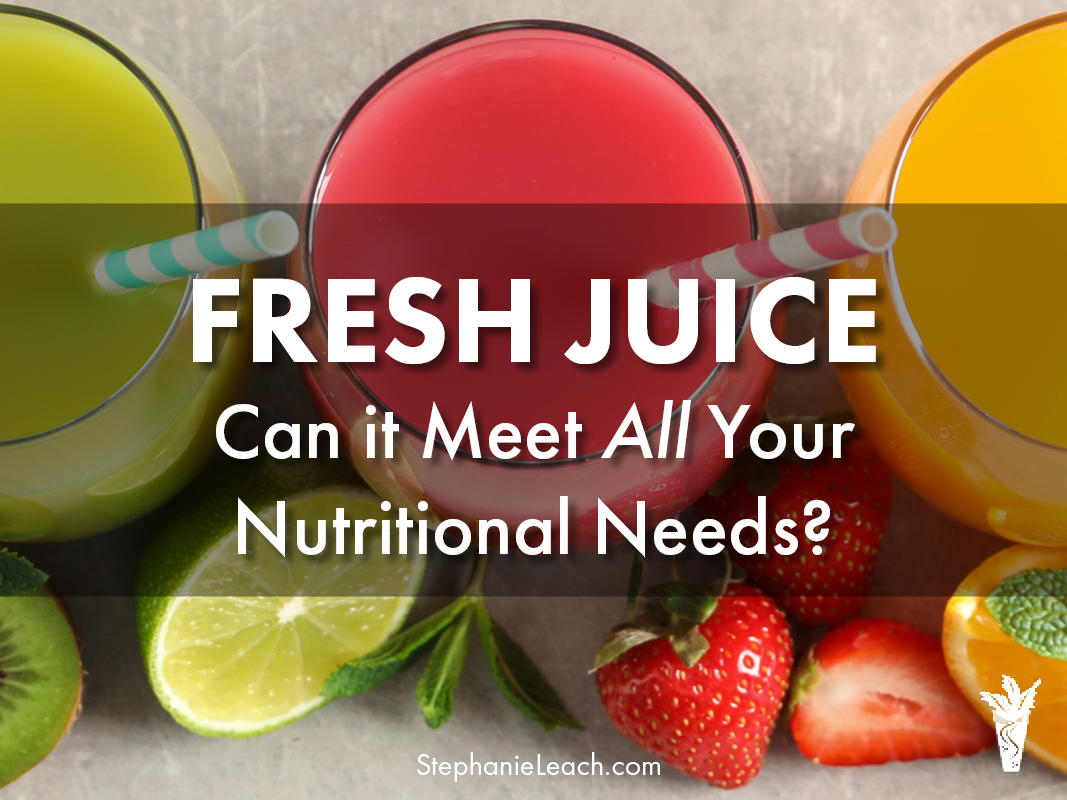
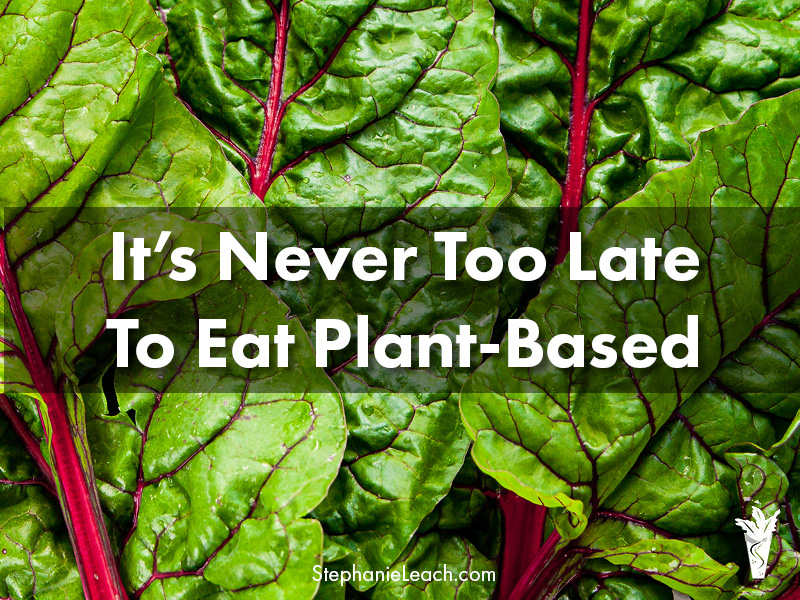
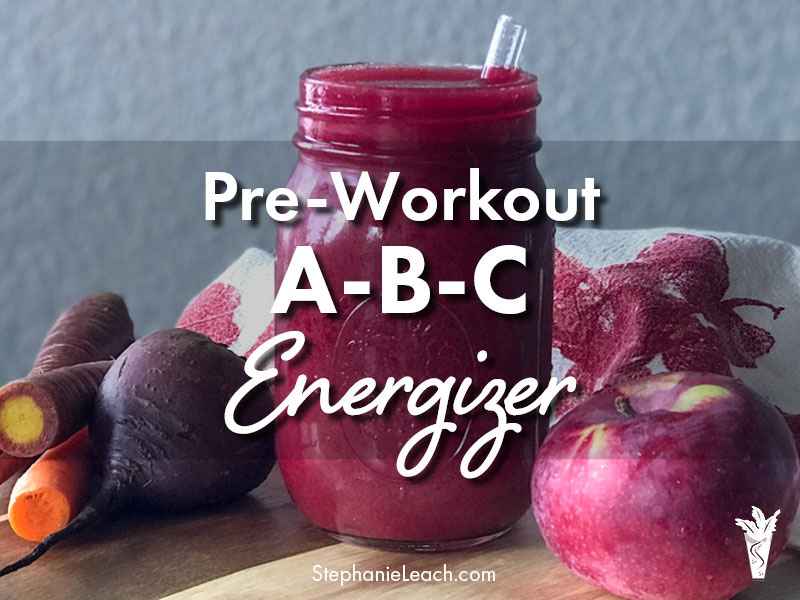

Leave A Comment